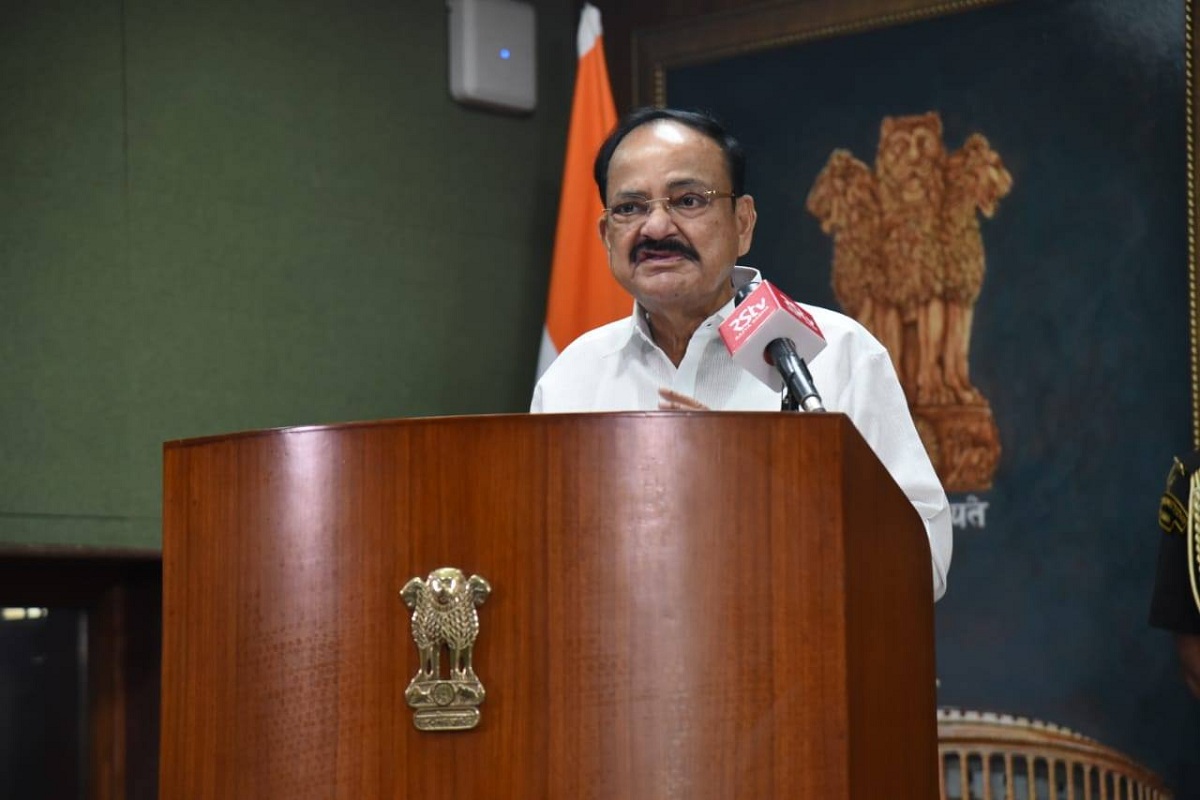Vice President M Venkaiah Naidu today called for ‘collective action’ from people, along with enabling policies, for limiting the impact of climate change.
He was inaugurating the International Conference on Environmental Diversity and Environmental Jurisprudence at Chandigarh University, Mohali.
Advertisement
He said “to be able to achieve the 1.5 degrees C global warming limit, we must aim at both macro-level systemic changes as well as micro-level lifestyle choices. We need a people’s movement for environmental protection.”
Calling for serious introspection and bold actions to mitigate the reality of increasing extreme events and diminishing biodiversity, Naidu said that “it is not only the duty of the government to deliberate, but it is the duty of every citizen and human being on earth to save this planet.”
He said that India has always been leading the world in climate action and reiterated India’s commitment to fulfilling the ambitious national targets set by Prime Minister Narendra Modi at the COP26 Summit in Glasgow recently.
Referring to how Indian culture has always revered and worshiped nature, Naidu said India had enshrined principles of environmental protection in the Constitution and passed many laws “even before environmental discourse gained pace in the developed world”.
“This spirit draws heavily from our ancient values that look at human existence as part of the natural environment and not as one that exploits it,” he said.
Lauding the Indian higher judiciary for upholding environmental justice over the years, he suggested that “lower courts too must uphold an eco-centric view and keep the best interests of the local populations and biodiversity in their judgments.”
He called for stringent action against violators of pollution laws and strict enforcement of the ‘Polluter Must Pay’ principle.
The Vice President stressed the need for honest implementation of laws, suggesting that “only passing laws is not sufficient, strict action against violators is equally important”.
He suggested empowering Pollution Control Boards and local civic bodies with resources, technical expertise, and punitive powers to implement environmental laws effectively.
Noting that the Constitution empowers Gram Panchayats in matters of water management, soil conservation, and forestry, he called for better fund allocation for this purpose.
“Effective functioning of grassroots level bodies is critical in handling the climatic challenges of today and the future”, he said.
Naidu recalled that in earlier times, people in villages used to come together to protect the adjacent forests and repair ponds and canals. “What we need today is a change in people’s mindset. Unless environmental protection becomes a people’s movement, our future is bleak,” he emphasised.
Highlighting the contributions of the National Green Tribunal, Naidu noted that with the growing demand for environmental litigation, there is an urgent need for training more legal practitioners in environmental law.
Punjab Governor Banwarilal Purohit; Supreme Court Judges Justice Surya Kant and Justice Bhushan Ramkrishna Gavai; Judge of Brazil National High Court Justice Antonio Herman Benjamin; Himachal Pradesh Chief Justice Justice Mohammad Rafiq; UN Resident Coordinator of India Shombi Sharp; former Supreme Court Judge Justice Swatanter Kumar (Retd) and Chancellor of Chandigarh University Satnam Singh Sandhu were present at the event.
